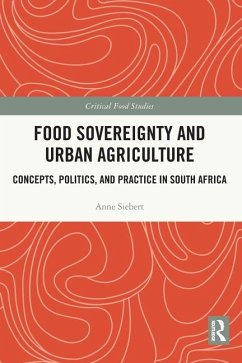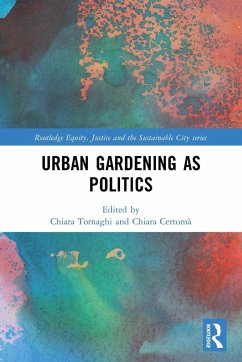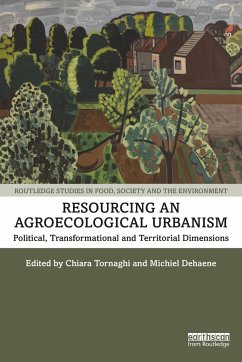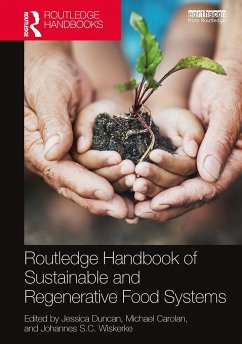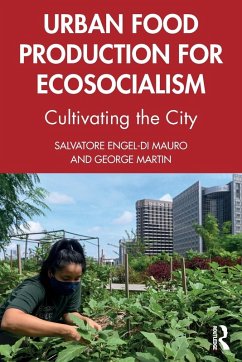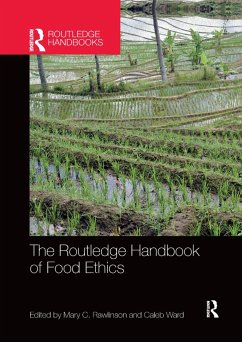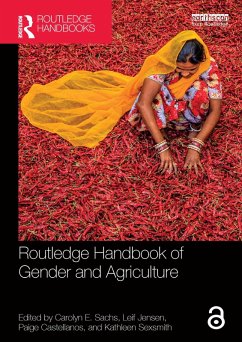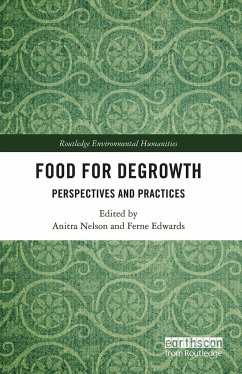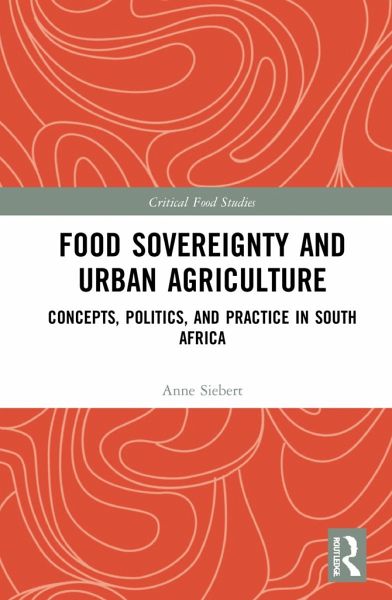
Food Sovereignty and Urban Agriculture
Concepts, Politics, and Practice in South Africa
Versandkostenfrei!
Versandfertig in 6-10 Tagen
154,99 €
inkl. MwSt.
Weitere Ausgaben:

PAYBACK Punkte
77 °P sammeln!
This book analyses the interplay of urban agriculture and food sovereignty through the innovative lens of the "critical urban food perspective". It focuses on the mobilisation of urban food producers as a powerful response to highly exclusionary dynamics in the agri-food system including insufficient food access and disastrous land dispossessions.This volume particularly aims to fill the gap in the current literature by engaging with food sovereignty discourses and movements in urban areas. Related activism of urban food producers in the Global South remains underrepresented in practice and in...
This book analyses the interplay of urban agriculture and food sovereignty through the innovative lens of the "critical urban food perspective". It focuses on the mobilisation of urban food producers as a powerful response to highly exclusionary dynamics in the agri-food system including insufficient food access and disastrous land dispossessions.
This volume particularly aims to fill the gap in the current literature by engaging with food sovereignty discourses and movements in urban areas. Related activism of urban food producers in the Global South remains underrepresented in practice and in literature. Therefore, this book engages with the lived realities of an urban agriculture initiative in George, South Africa. Building on theoretical notions of the "right to the city" and "everyday forms of resistance", the book illuminates how deprived food producers expose inequalities and propose alternatives. The findings of in-depth empirical research reveal that dwellers perceive farming as a mean to overcome historical segregation, high food prices, and unhealthy nutrition. Hence, they breathe life into food sovereignty in practice and suggest further alliances beyond the city.
The book will be of interest to scholars and students of alternative food politics, agrarian transformation, and food movements as well as rural-urban intersections.
This volume particularly aims to fill the gap in the current literature by engaging with food sovereignty discourses and movements in urban areas. Related activism of urban food producers in the Global South remains underrepresented in practice and in literature. Therefore, this book engages with the lived realities of an urban agriculture initiative in George, South Africa. Building on theoretical notions of the "right to the city" and "everyday forms of resistance", the book illuminates how deprived food producers expose inequalities and propose alternatives. The findings of in-depth empirical research reveal that dwellers perceive farming as a mean to overcome historical segregation, high food prices, and unhealthy nutrition. Hence, they breathe life into food sovereignty in practice and suggest further alliances beyond the city.
The book will be of interest to scholars and students of alternative food politics, agrarian transformation, and food movements as well as rural-urban intersections.




